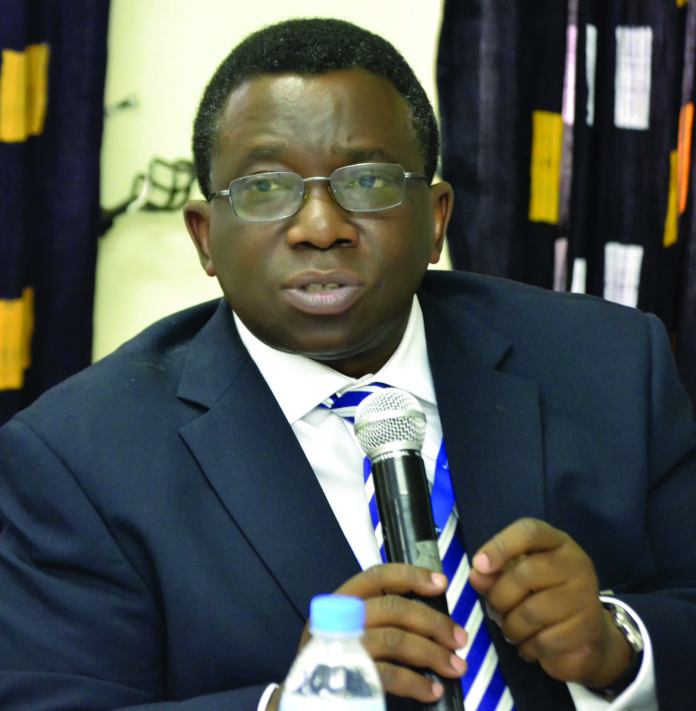By Ishaya Ibrahim
Acting News Editor
A typical day at the Lagos University Teaching Hospital (LUTH) is rowdy. Patients endured a long queue before seeing doctors. They come out of the consulting room with a list of recommended laboratory tests – X ray, scan, blood tests, stool tests, urine tests and many others. Worse, these tests can only be done in privately run laboratory at cut throat prices. Patients can’t afford the bills. They resort to begging.
The implication of the above scenario is that the 2018 budget which is even in trillions of naira does not have the capacity to deal with the challenges Nigerian grapple with everyday with regard to their health and well being.
In 2016, the face of a one-and-a-half-year-old Michael Adelaja was almost destroyed because his mother could not raise the funding for his treatment. The pathetic sight of the boy appealed to the emotions of some Good Samaritans when he and the mother were aired on Television Continental (TVC).
Reprieve came the way of the boy when Nollywood star, Kate Henshaw with the help of Project Alert shouldered the effort of footing his medical bills.
Michael’s treatment plan included that he was to be on admission for an initial period of one month in order for the doctors to carry out tests and commencement of treatment. But there was no accommodation for him at the hospital. He had to be ferried from home for the period. As if that was not bad enough, his treatment was disrupted in June of that year because nurses were on strike.
TheNiche analysis of Nigeria’s budget spending on health has revealed that the allocation can only pay salaries and allowances of health personnel and civil servants working for the health ministry. What is left for capital project is too tiny to go round.
For instance, the 2018 budget estimate which is still pending at the National Assembly, has a total of N340 billion allocated to the health ministry. This is four percent of the total budget.
The sum is to be shared among the 22 federal medical centres, 20 teaching hospitals, psychiatric hospitals, research centres, specialised medical schools and other health institutions.
A further breakdown of the budget shows that 80 percent or N270 billion is for personnel and recurrent cost while N71 billion or 20 percent is for capital projects.
In LUTH for instance, despite the billion dollar challenges there, its capital allocation is just a little above N300 million.
At state’s owned hospitals, it is even worse. Ifako Ijaiye general hospital, owned by the Lagos State government, refers even malaria tests to outside Laboratory. The State’s teaching Hospital is not better.
TheNiche interviewed a man who had a bone stuck in his throat. He was referred to Lagos State University Teaching Hospital’s (LASUTH) ear, nose and throat (ENT) clinic from a private hospital.
At the state’s teaching hospital, he was told that they didn’t have the equipment to handle the case. He was referred to LUTH.
He took off to LUTH the following day only to find a huge crowd of sick people at the hospital’s emergency unit jostling for attention. When he presented his problem, he was told he had to be in the queue for another two weeks because there was no bed for new cases.
In Ogun State, Primary Health Care (PHC) centres which are supposed to be first contact with sick folks, have been turned into a commercial enterprise, one of the nurses who work at the Ajuwon health clinic told TheNiche.
The nurse made the remark while trying to convince a father to pay some money before treatment could commence for his four year old child who had suffered a head injury.
“They are even threatening to close some clinics because they are not making money,” the woman alleged.
With just four percent of Nigeria’s total spending in 2018 allocated to the health sector, analysts have argued that the health of Nigerians is not the priority of the government.
“When your president can be treated in London when he falls sick and his son treated in a private hospital at the time he had an accident, why will he bother about public health,” Austin Gowon, a Kaduna based doctor said.
He advised Nigerian government to learn from the United States which makes health spending second biggest after defence.
“For instance, the health budget of the U.S. government in 2016 was $1 trillion or 28 per cent of their total spending,” he said.
The World Bank President Jim Yong Kim, has also counseled the Nigerian government to spend more on the lives of Nigerians.
“If you look at the numbers in terms of how successful African countries have invested in their human beings, versus other regions, you will know that it is a real issue. From next year, not just in Nigeria, but in the rest of Africa, we are going to focus on accelerating investments in human capital as well as investments in education,” he said.
- Advertisement -
- Advertisement -











